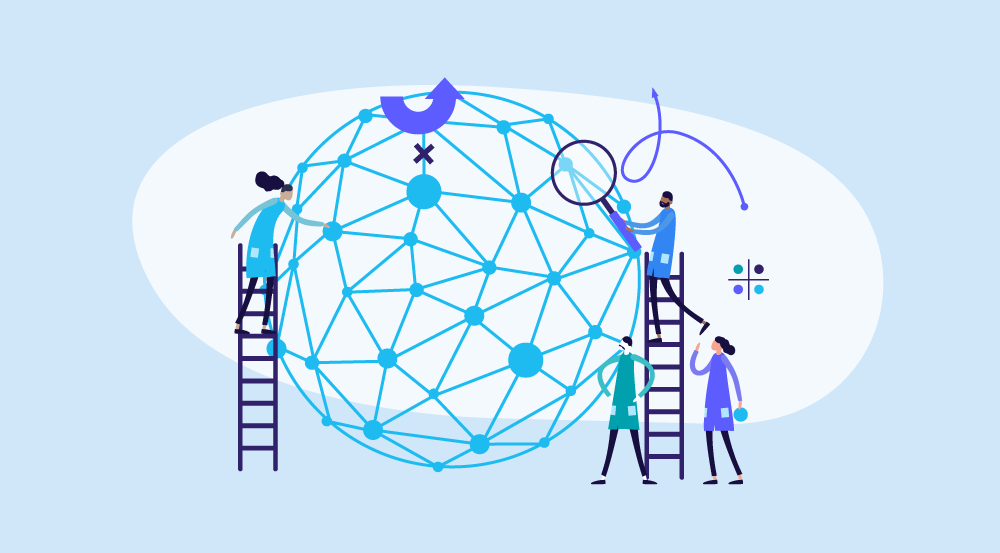What Are Time Management Skills In Events Management?

Time management skills in events management refer to the ability to plan, schedule, and execute events within a given time frame. Time management is essential in event planning because it helps ensure that all aspects of the event are properly taken care of and that the event runs smoothly.
What Are The Five Time Management Skills?
The five-time management skills are:
Planning: This skill involves setting goals and creating a schedule or timeline for completing the tasks needed to reach those goals. Planning is crucial because it lets you allocate your time in a way that will help you achieve your objectives.
Scheduling: This skill involves organizing your time in a way that allows you to complete tasks efficiently. Scheduling is important because it helps you make the most of your time and avoid conflicts between tasks.
Organizing: This skill involves grouping similar tasks together and creating a system for storing related information. Organizing is important because it helps you track what needs to be done and makes it easier to find information when needed.
Executing: This skill involves completing the tasks on your schedule. Executing is essential because it ensures that you are making progress towards your goals.
Monitoring: This skill involves tracking your progress and looking for ways to improve efficiency. Monitoring is important because it helps you to identify areas where you can make changes to improve your time management skills.
When all of these skills are used together, they can help you manage your time effectively and ensure that your event is successful.
What Are Some Tips For Effective Time Management?
Some tips for effective time management include:
Make a list of what needs to be done and prioritize tasks based on importance
Set deadlines for yourself and stick to them
Delegate tasks to others
Keep a calendar or planner to stay organized
Take breaks when needed
What Is The Most Essential Skill In Good Time Management?
The most critical skill in good time management is the ability to prioritize tasks. This means knowing which tasks are the most important and need to be done first and which tasks can be delayed until later. Other critical time management skills include staying organized, setting deadlines, and delegating tasks.
What Are The Communication Skills Of Event Organizers?

Communication skills are critical for event organizers to effectively communicate with all stakeholders involved in the event. This includes vendors, sponsors, guests, and other team members. Event organizers must be able to clearly explain their vision for the event and provide instructions on what needs to be done. They must also have access to feedback and concerns from others to make the necessary changes.
What Are The Hard Skills For Event Management?
Hard skills for event management refer to the specific knowledge and technical skills required to successfully plan and execute an event. These skills can be learned through formal education or training programs. Some examples of hard skills for event management include event planning, project management, budgeting, and marketing.
What Are The Leadership Skills In Event Management?

Leadership skills are essential in event management to successfully lead a team of people working together to plan and execute an event. Event managers must be able to motivate their team, provide direction, and resolve conflicts. They must also be able to build relationships with other stakeholders involved in the event, such as vendors and sponsors.
Benefits Of Effective Time Management
Some of the most important benefits of effective time management include:
Increased Productivity – You can get more done daily when you manage your time well. This is because you will be better organized and will have a plan for how to use your time efficiently.
Reduced Stress – If you constantly feel overwhelmed by the amount of work you have to do, it can lead to stress and burnout. Good time management skills will help you to handle your workload better and will reduce the amount of stress that you feel.
Improved Communication – When you manage your time effectively, it will improve how you communicate with others. This is because you will be less likely to miss deadlines or appointments, and you will be able to respond to messages and queries on time.
Better Prioritization – One of the most important aspects of time management is learning how to prioritize tasks. This means that you can focus on the most important tasks first and less likely to waste time on less important tasks.
Improved Planning Skills – Good time management skills go hand-in-hand with good planning skills. When you can plan your time well, it will be easier to achieve your goals and meet deadlines.
Enhanced Problem-Solving Skills – Those who manage their time are usually good at solving problems. This is because they can think quickly and come up with creative solutions when faced with a problem.
Greater Creativity – When you have good time management skills, it allows you to have more time for creative pursuits. This means that you can come up with new ideas and will be less likely to feel bogged down by mundane tasks.
Improved Focus – When you can manage your time well, it allows you to focus more on the task at hand. This is because you will be less likely to be distracted by other things that are going on in your life.
Enhanced Time Awareness – Good time management skills help you become more aware of how you spend your time. This means that you will be less likely to waste time on activities that are not productive.
Increased Motivation – When you are able to manage your time well, it can lead to increased motivation. This is because you will see the progress that you are making and will be less likely to become discouraged.
Role Of Oreed In Time Management For Events
Oreed is a virtual assistant that can help with time management for events. Oreed can help with tasks such as creating a timeline for the event, booking venues and suppliers, and communicating with stakeholders. Oreed can also help keep track of expenses and budget for the event. Using Oreed can help take some of the stress out of event planning, and help organizers stay organized and on track.
What Is The Importance Of Time Management In Event Planning?
Time management is important in event planning because it helps organizers stay on track and keeps the event running smoothly. Having a timeline for the event and knowing what tasks need to be done can help reduce stress and ensure that nothing is missed out. Using a tool like Oreed to manage tasks and communicate with stakeholders can also help take some pressure off of event planners.
What Are Some Best Time Management Tips For Work?
Some of the best time management tips for work include:
- Set realistic goals and priorities
- Make a list of tasks to be done each day
- Schedule time for breaks
- Take advantage of technology
- Delegate tasks
- Say no to distractions
- Learn to say no
- Simplify your work process
- Set aside time each day to plan
What Is The Difference Between Time Management And Organizational Skills?
Time management skills include planning, scheduling, and executing events within a given time frame. Organizational skills refer to the ability to keep track of details and information related to the event. Both time management and organizational skills are important in event planning.
What Is An Example Of Time Management Skills And Organizational Skills?
An example of time management skills would be creating a timeline for the event and knowing when tasks need to be done. This helps organizers stay on track and reduces stress. Other time management skills include delegating tasks, setting deadlines, and staying organized.
An example of organizational skills would be creating a system to keep track of all the details related to the event. This includes vendors, suppliers, guests, and other team members. Organizational skills also involve effectively communicating with all stakeholders involved in the event.
10 Benefits Of Using Learning Management Systems Like Oreed

Learning Management Systems like Oreed bring along lots of benefits. They help enhance the learning experience, effectively utilizing technology to maximize the event's outcomes and manage it efficiently, thereby saving precious time and effort. Following are a few benefits for students and training institutes;
Support more efficient distribution of class materials
A variety of resources in different formats
Parents can access their child's class schedule, outlines, and assessments online.
This tool enables you to assess your students in multiple ways, giving you more options for success
Feedback transparency
Offers multiple communication methods
Data tracking for students
Enhances student organization
Digital technologies are revolutionizing teaching and learning
Moving to remote learning in a heartbeat
What Are The Features Of LMS And Their Uses?
Some of the features of Learning Management Systems include:
LMS Integrations
Having an LMS integrated with other platforms, such as association management software or talent management systems, allows instructional designers to incorporate vital course completion information into learning data.
Personalized User Experience
An effective LMS should provide material based on a learner's previous use of the software and their job to promote wider usage. For example, if a person is in a sales position, they should be able to discover more training material in the LMS immediately.
The use of adaptive assessments and quizzes that track a student's progress across a course will help students to focus on areas where they need to improve. Users become more committed to the process if an LMS is tailored to their learning preferences and employment function.
Offline Learning Trackers
Learning data for roles that require training and assessment in a real-world setting, like those involving manual or technical activities, can be challenging to track and store. An LMS should allow learning professionals to capture offline assessment results to bring this learning back online.
This can be done by creating and editing assessment checklists suited for specific skills or abilities that need to be evaluated. These checklists can then be stored electronically for easy access.
Automated Alerts And Notifications
Although learning management systems are full of features, you cannot properly identify a learner's needs without proper oversight. Automated alerts and notifications are necessary to ensure trainers and managers know how their learners have been engaging and completing course materials.
An LMS may deliver feedback to the appropriate people at the right time by sending auto-alerts to students about their training deadlines or notifying instructors about users' completion rates.
Centralized Learning Materials
A Learning Management System (LMS) should do more than offer eLearning solutions. It should also be a library for videos, slide presentations, written instruction, and other easy-to-use and centralized training materials. This would enable users and learning & development professionals to stay organized while also providing consistency- two critical elements in increasing learner engagement.
Having a variety of learning materials also allows for blended learning, which can be a valuable tool for Learning and Development professionals working with a distributed team.
Flexible Reporting And Analytics
An LMS with comprehensive reporting and analytics is essential to assess learning programs' effectiveness properly. The ability to quickly visualize learner data and create customizable reports allows L&D professionals to pinpoint areas needing improvement in order to design more effective training programs. The ability to spot patterns will enable educators to tailor their programs, which is crucial for sectors where staying compliant is non-negotiable.
Remote Or Mobile-Workforce Ready
With companies having employees all over the world, on-site training is impractical. Mobile and remote learning must be available to learners at any time and place so businesses can train their workforce no matter where they are located.
Conclusion
The importance of time management in event planning cannot be overstated. By employing the right skills explained in the article, you can ensure that your events run smoothly and on time. Proper time management is essential to the success of any event, so make sure to use these skills to your advantage.






